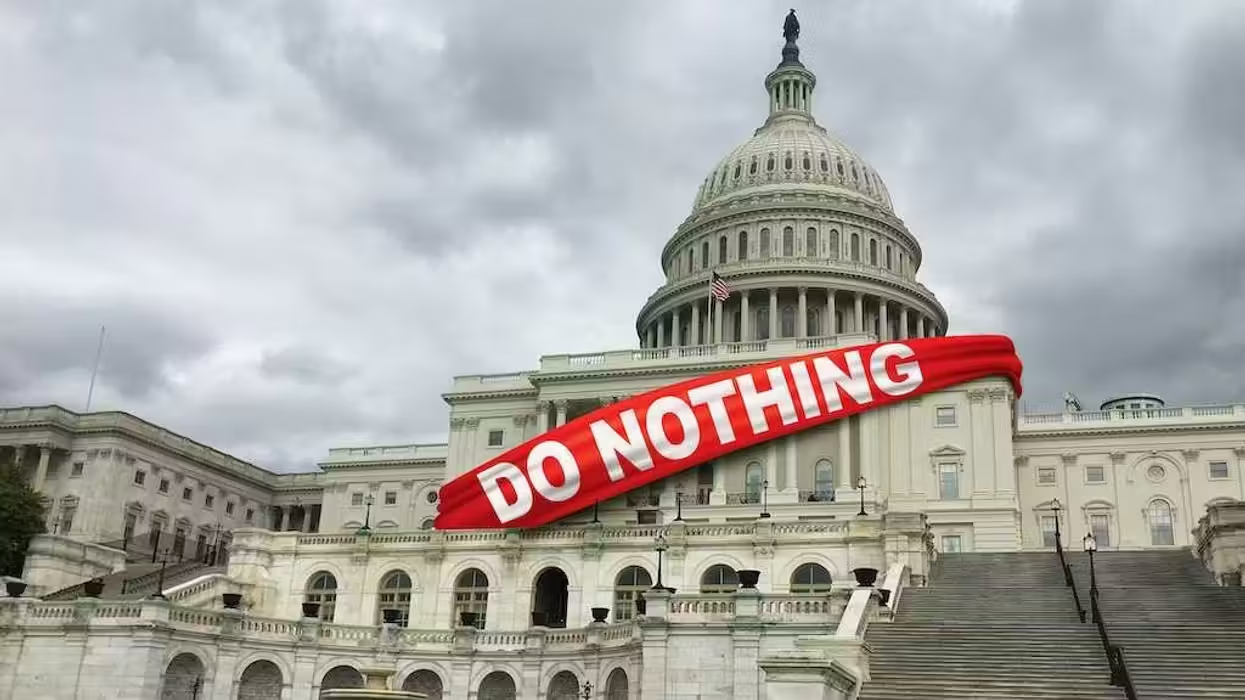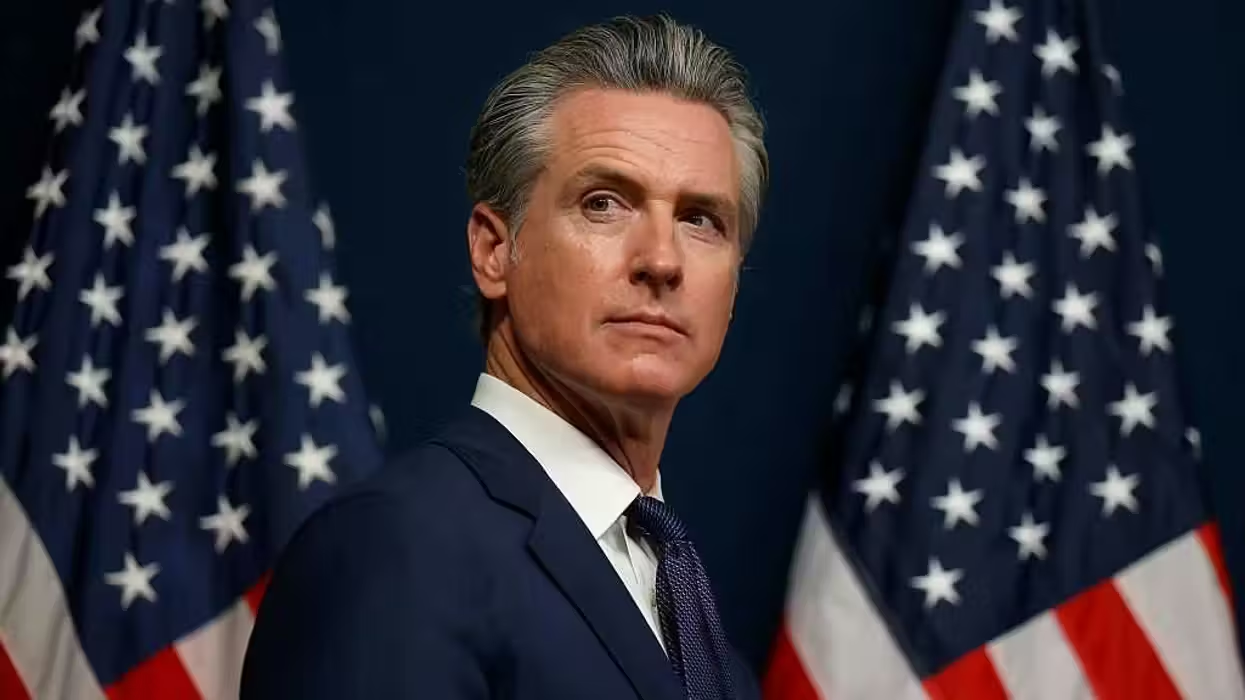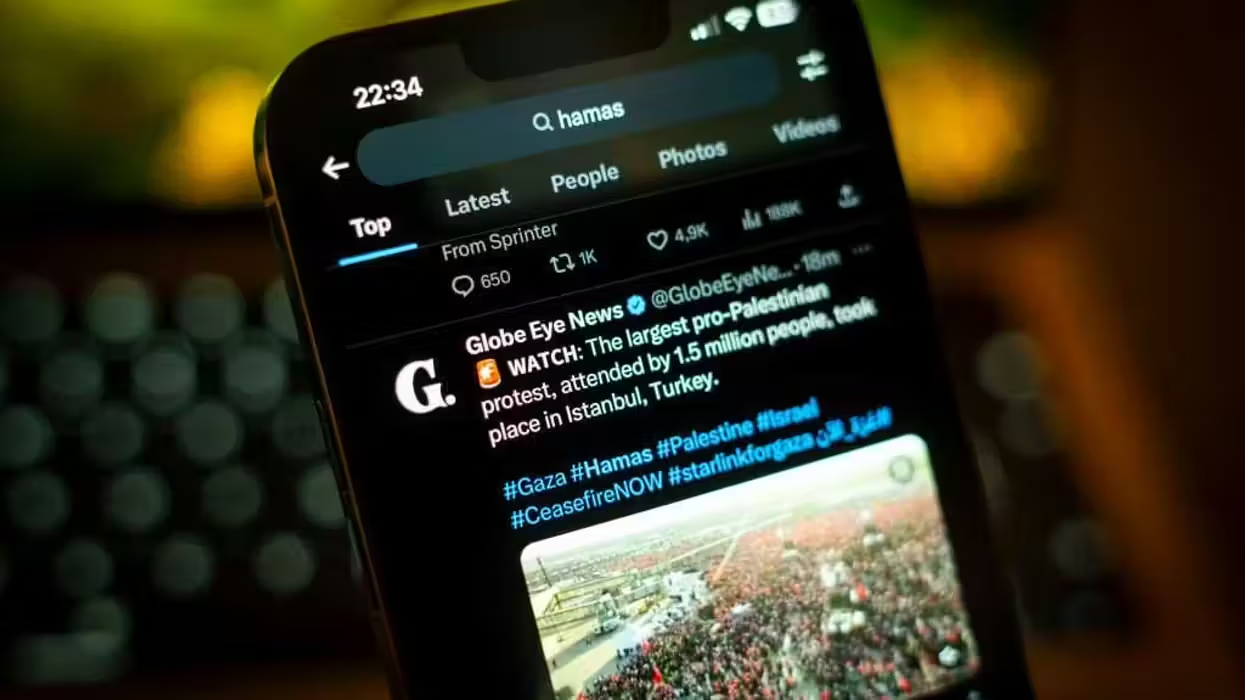
© 2025 Blaze Media LLC. All rights reserved.
"A near-peer competitor [country] could give cyber malware capability to some fringe group."
 In this year alone, the hacker collective Anonymous has infiltrated and/or launched attacks on prominent government agencies such as the CIA, DOJ and FBI, in addition to a slew of local governments and police departments. Some of these attacks have revealed private information, while others have temporarily disabled websites.
In this year alone, the hacker collective Anonymous has infiltrated and/or launched attacks on prominent government agencies such as the CIA, DOJ and FBI, in addition to a slew of local governments and police departments. Some of these attacks have revealed private information, while others have temporarily disabled websites.
These types of attacks have prompted the National Security Administration to speculate that Anonymous could eventually make its way into U.S. infrastructure as well, creating small, albeit short-lived, power outages.
(Related: Homeland Security: Attacks on U.S. Infrastructure on the Rise)
The Wall Street Journal reports that with more utilities bringing systems online to streamline operations, within the next year -- or two -- they could be susceptible to "stateless" hackers:
Gen. Keith Alexander, the director, provided his assessment in meetings at the White House and in other private sessions, according to people familiar with the gatherings. While he hasn't publicly expressed his concerns about the potential for Anonymous to disrupt power supplies, he has warned publicly about an emerging ability by cyberattackers to disable or even damage computer networks.Gen. Alexander's warning signals a growing federal concern over the capabilities of Anonymous, a loose affiliation of so-called hacktivist computer programmers who have launched a raft of high-profile cyberassaults against U.S. government and corporate targets such as Visa Inc., MasterCard Inc. and eBayInc.'s PayPal service.
Even if Anonymous were to launch an attack on utilities that would result in blackouts, which WSJ notes it hasn't yet threatened, experts have said the power outage would be short and localized. WSJ reports that there are measures in place that allow power to be restored as quickly as possible in the event of a cyberattack. While Anonymous, which WSJ calls a "stateless group", doesn't have the capability to disrupt the grid yet, but it's not an unlikely possibility. The scenario discussed in a White House meeting included another country giving malware that could disrupt power systems to a group like Anonymous:
"A near-peer competitor [country] could give cyber malware capability to some fringe group," said Gen. Martin Dempsey, chairman of the Joint Chiefs of Staff. "Some hacker, next thing you know, could be into our electrical grid. We have to get after this."
According to Gizmodo, Anonymous has spoken out against these suggestions stating that its attacks are to help "ordinary citizens against leaders and power structures". Shutting off the power would not accomplish this goal. Anonymous wrote:
The NSA's reprehensible fear-mongering and attempts to discredit #Anonymous are transparent and baseless.NSA's alarmist rhetoric & fear-mongering is reprehensible. They should focus on the myriad of current security holes.
While utility hacks aren't an immediate target for Anonymous, the group is currently working on taking down the whole of the Internet on March 31 as part of its Operation Global Blackout. This operation targets the world's 13 root Domain Name Servers. MSNBC reports an Anonymous member stating the shut down may not be long-- perhaps only an hour -- but "it will be global. It will be known." Still, experts have said it is unlikely Anonymous would be successful in this attempt. Kim Davies from the Internet Corporation for Assigned Names and Numbers conceded that there could be "small disruptions" but he is "doubtful anyone will notice."
[H/T Gizmodo]
This post has been updated to include Anonymous' perspective.
Want to leave a tip?
We answer to you. Help keep our content free of advertisers and big tech censorship by leaving a tip today.
Want to join the conversation?
Already a subscriber?
more stories
Sign up for the Blaze newsletter
By signing up, you agree to our Privacy Policy and Terms of Use, and agree to receive content that may sometimes include advertisements. You may opt out at any time.
Related Content
© 2025 Blaze Media LLC. All rights reserved.
Get the stories that matter most delivered directly to your inbox.
By signing up, you agree to our Privacy Policy and Terms of Use, and agree to receive content that may sometimes include advertisements. You may opt out at any time.





